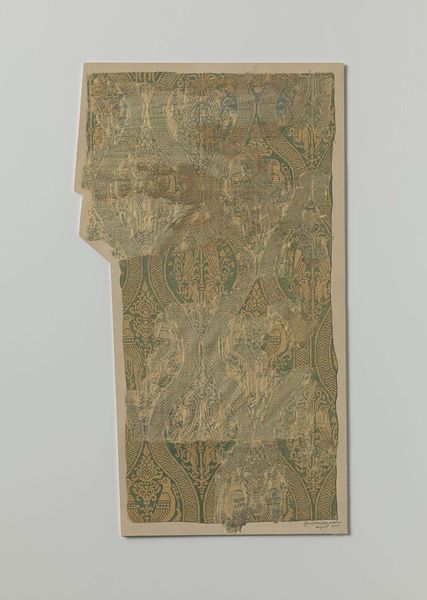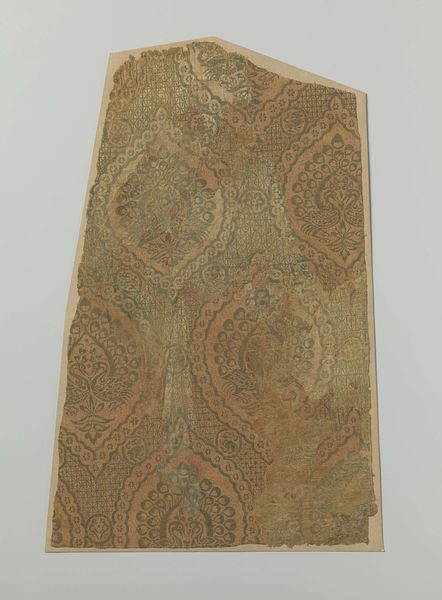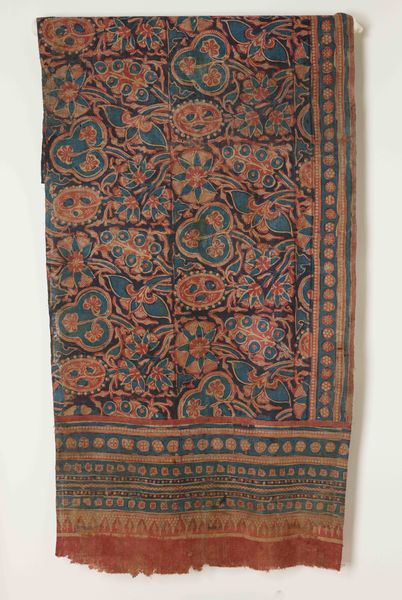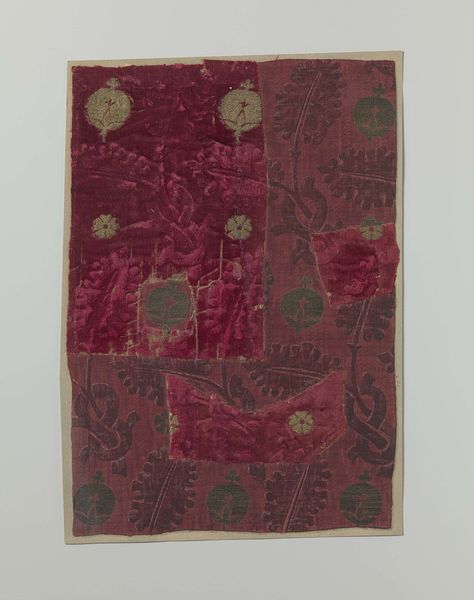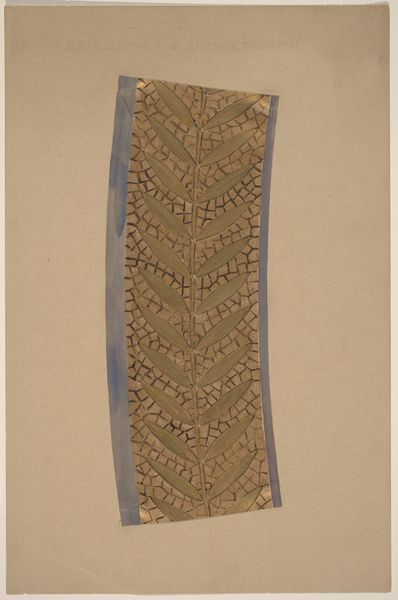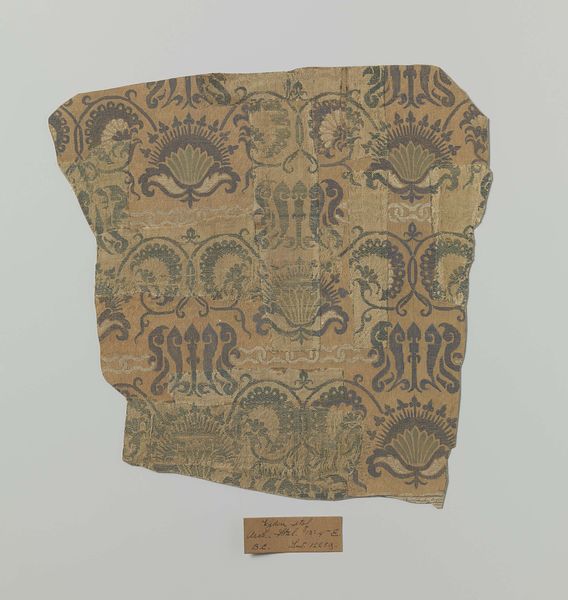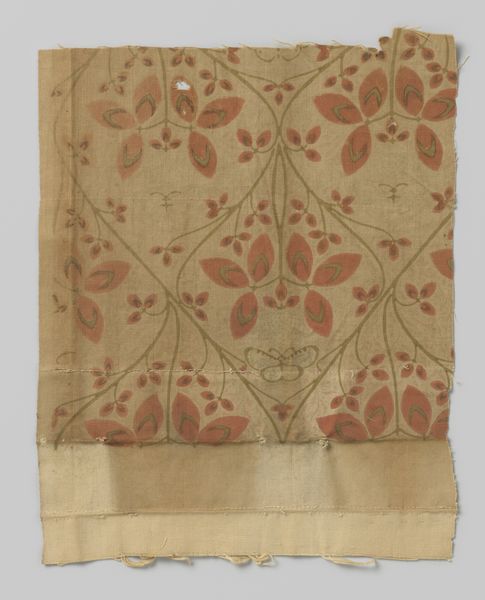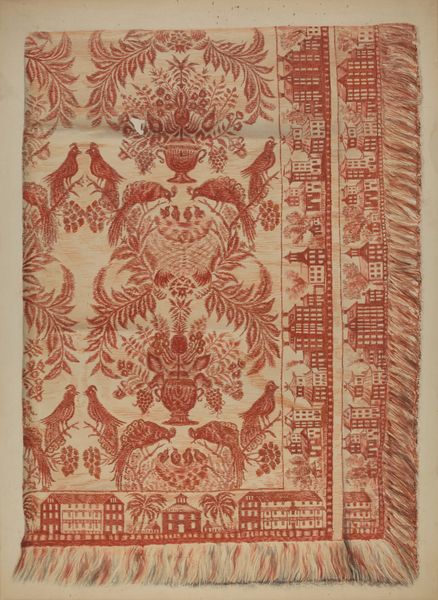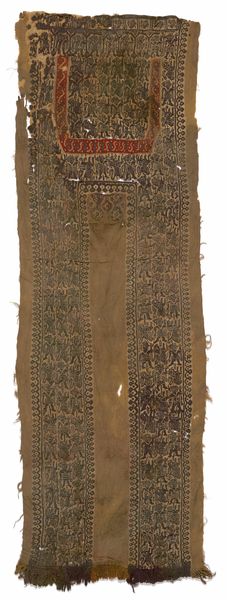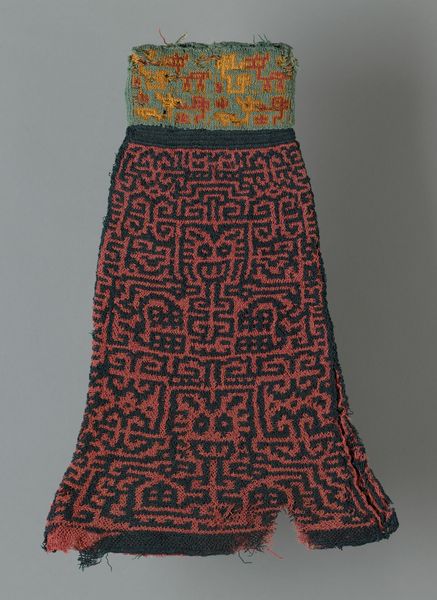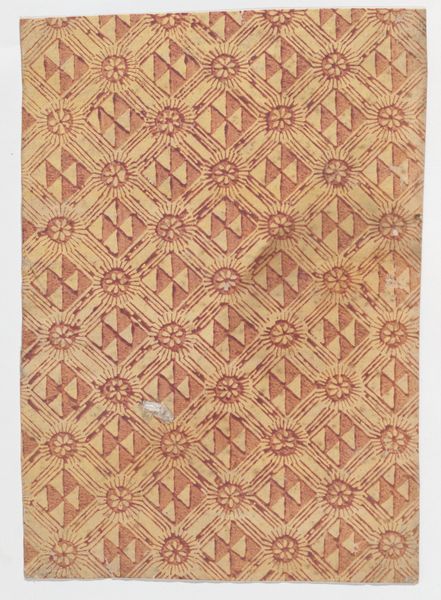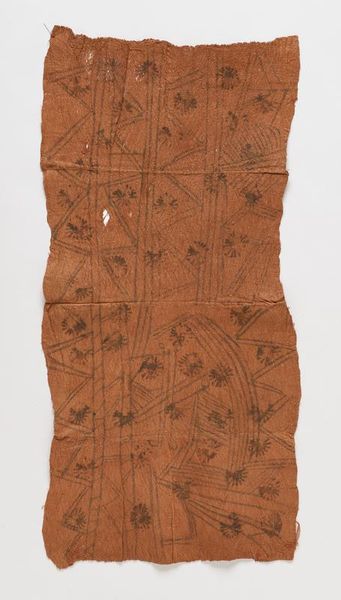
weaving, textile
#
natural stone pattern
#
toned paper
#
weaving
#
textile
#
repetitive shape and pattern
#
stoneware
#
geometric
#
fabric design
#
repetition of pattern
#
regular pattern
#
pattern repetition
#
islamic-art
#
decorative-art
#
imprinted textile
#
layered pattern
Dimensions: height 46.8 cm, width 34.3 cm
Copyright: Rijks Museum: Open Domain
This fragment of silk textile was made anonymously, date unknown. The pattern features a complex series of geometric shapes and rosettes, incorporating stylized vegetal and calligraphic motifs. Textiles like this, especially silk, have historically been key commodities in global trade networks. The patterns and materials can tell us about the movement of ideas and technologies across cultures. This fragment's design shows a sophisticated understanding of pattern-making and weaving techniques. The presence of calligraphy suggests a culture where the written word held high status, and the geometric designs may point to the influence of Islamic art, which often favors non-figurative representation. We might ask: Where was this textile likely produced? Who would have been able to afford it? Answering these questions requires close attention to the visual codes within the textile itself, combined with historical research into trade routes, textile production centers, and sumptuary laws that might have governed who could wear such luxurious fabrics. The meaning of this art resides in its rich social and institutional history.
Comments
No comments
Be the first to comment and join the conversation on the ultimate creative platform.
